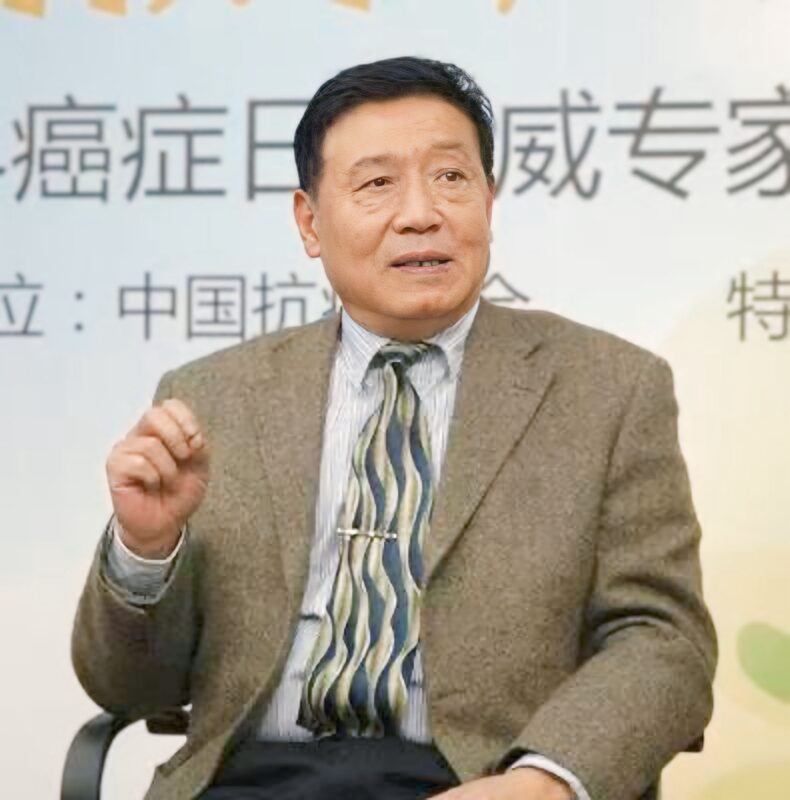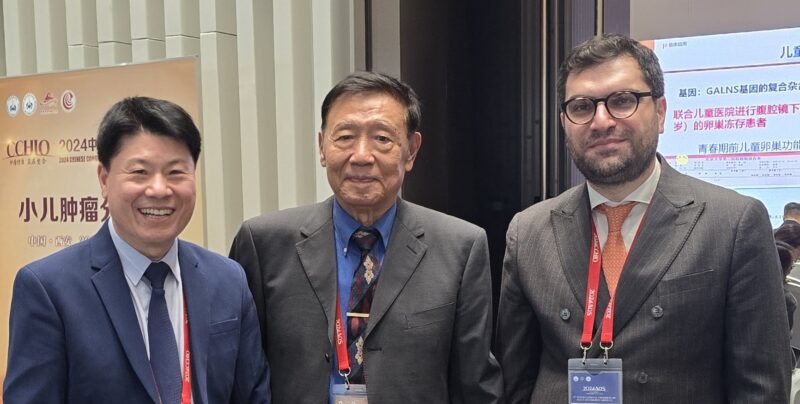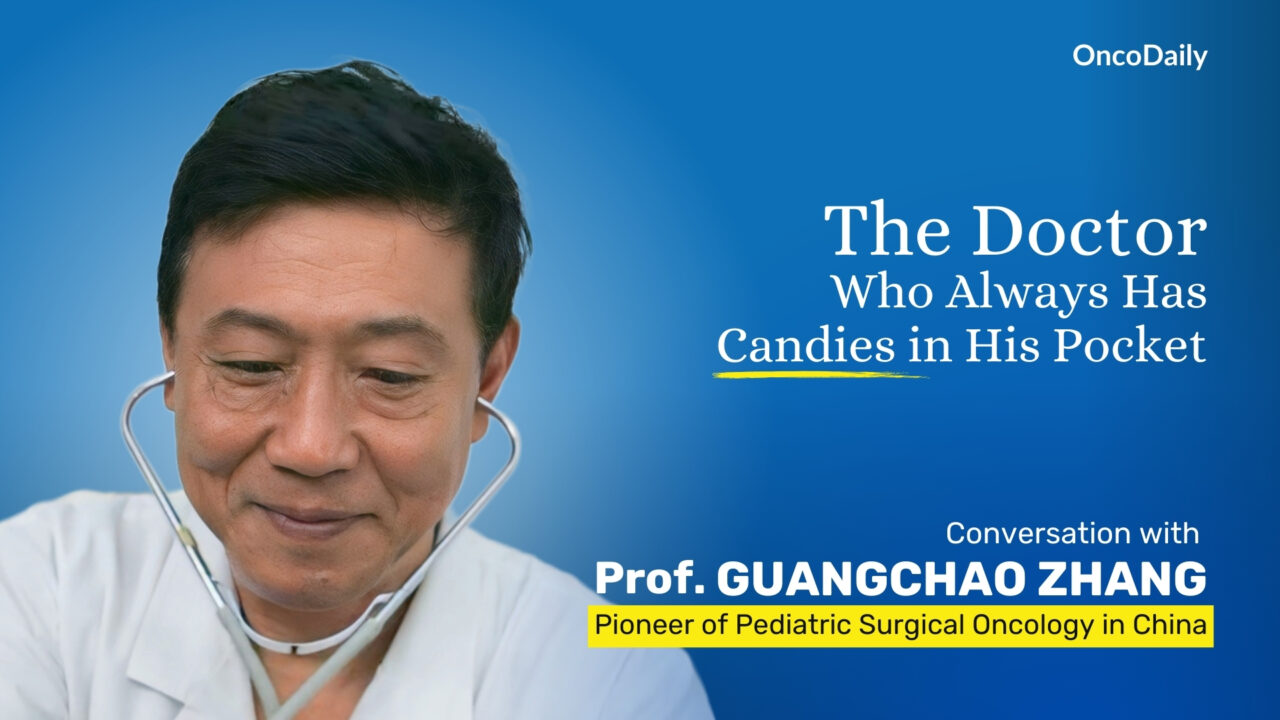Interview with Prof. Guangchao Zhang, By the Editor-in-Chief of OncoDaily, Prof. Gevorg Tamamyan
It was a crisp November evening at the welcome dinner of the China Anti-Cancer Association (CACA) Annual Meeting. Amid the buzz of conversations and clinking glasses, I found myself seated across from a man whose presence radiated warmth and wisdom. He was Professor Guangchao Zhang, one of the patriarchs of pediatric surgical oncology in China, a former General Secretary of CACA, and a lifelong advocate for children’s health. What began as a chance encounter turned into an unforgettable opportunity to delve into the life and legacy of one of China’s most revered pediatric oncologists.
The next day, I sat down with Professor Zhang for an interview, joined by his former student, Professor Huanmin Wang—now a globally recognized pediatric surgical oncologist, Director of Surgical Oncology at Beijing Children’s Hospital and Chairman of the Chinese Children Cancer Group—as well as Professor Zhang’s wife and my friend Yan Liu, a distinguished cancer radiologist who graciously helped navigate our conversation across Chinese and English. Together, we uncovered the incredible journey of a man who shaped the field of pediatric oncology in China and beyond.
A Family Legacy and a Lifelong Dedication
Professor Zhang’s path to medicine was deeply rooted in his family’s traditions. “Many of my relatives worked in the Red Cross or military hospitals,” he shared, his voice warm with nostalgia. “Their dedication inspired me to pursue a career in medicine.”
After graduating from Tianjin Medical University, one of China’s most prestigious institutions, Professor Zhang dedicated six years to medical school before embarking on his residency. His discipline, confidence, and devotion to his craft set him apart early on. “Studying is important, but being disciplined is crucial, especially as a surgeon,” he explained. “Surgery isn’t just about treating patients; it’s about extending their lives with precision and care. You treat people, not just diseases.”
His early years as a pediatric surgeon laid the foundation for his eventual transition to pediatric oncology. “I began my career in Tianjin City Children’s Hospital as a pediatric surgeon. Oncology came later. I was drawn to it because pediatric oncology is different— in pediatric oncology, the stakes are higher. For adult cancers, stabilizing the disease and achieving a decade of survival is a significant accomplishment. But for children, 10 years is just the beginning. Our goal is to provide a lifetime.”
The Evolution of Pediatric Oncology in China
When Professor Guangchao Zhang began his career, pediatric oncology in China was in its infancy. Surgical procedures were high-risk, and treatment options were limited. Over the decades, he witnessed—and contributed to—tremendous progress. “When I started, treatments were basic, and surgeries were fraught with risks,” he said. “Now, we have standardized treatments, multidisciplinary teams (MDTs), and emerging technologies like molecular tumor boards (MTBs) that allow us to tailor treatments to individual patients. This is the era of precision medicine.”
Professor Zhang reflected on significant advancements: “Anti-GD2, for example, has revolutionized the treatment of neuroblastoma. In less than two years, it has been integrated into China’s pediatric oncology practices, particularly in urban centers like Beijing, Shanghai, and Tianjin. These cities now match global standards in pediatric care, though rural areas still lag behind.”
He emphasized the importance of addressing these disparities. “Survival rates in cities are comparable to Western countries, but rural areas still struggle. Bridging this gap is vital for the future of pediatric oncology in China.”
Building CACA into a Global Powerhouse
During his tenure as General Secretary of CACA in 1997, Professor Guangchao Zhang oversaw remarkable growth. “When I started, there were only 40 professional committees. Now, there are over 220 committees and 800,000 members. Our pediatric oncology division is also keeping growing and it has most achievements among all committees of CACA” he said with pride.
He recalled the early days of the organization: “We had just a handful of experts—maybe 10 or so. Today, there are more than 100. CACA is now a global influence. We’ve introduced advanced surgical techniques and brought pediatric oncology into the top rankings of medical specialties.”
Professor Zhang also highlighted the importance of collaboration and mentorship. “We didn’t achieve this alone. My students, like Professor Wang, are now leaders in their own right. They are the next generation, carrying forward the work we started.”

Qualities of a Great Pediatric Oncologist
When asked what it takes to excel in pediatric oncology, Professor Zhang emphasized empathy, dedication, and resilience. “A pediatric cancer specialist must have a strong heart and endless dedication. We’re not just treating children; we’re supporting their families and shaping their futures. It’s a heavy responsibility that requires lifelong learning and practice.”
He also underscored the importance of considering the broader impact of a child’s illness. “Pediatric oncology isn’t just about curing cancer. It’s about restoring the future of a family, ensuring that the child grows up to live a full and meaningful life. You have to think about the family, the society, and the long-term outcomes for each patient.”
His wife added a poignant detail that captured his essence: “He always carries candies in his pocket for his young patients. He’s not just a doctor—he’s a kids’ doctor.”
Innovation and Precision Medicine
Professor Zhang highlighted the shift toward molecular-based treatments as a cornerstone of modern pediatric oncology. “We are transitioning from treating diseases to addressing molecular characteristics. This is the foundation of precision medicine, which minimizes long-term damage and improves outcomes for children,” he explained.
He shared examples of these advancements: “With proton therapy and precise surgical techniques, we can now locate tumors with unparalleled accuracy, reducing surgical risks and ensuring complete removal. Liver surgeries involving eight segments, once considered impossible, are now routine. These advancements are transforming the field.”
A Life of Dedication
After 50 years of surgery, Professor Zhang retired with an unparalleled record: no patient had ever passed away on his operating table. “When I retired, I said, ‘I put down the scalpel and become a Buddha,’” he said with a serene smile.
As we concluded our interview, Professor Zhang’s humility and dedication shone through. His story is one of relentless pursuit, transformative leadership, and boundless compassion—a legacy that will continue to shape pediatric oncology for generations to come.

Huanmin Wang, Guangchao Zhang and Gevorg Tamamyan. 2024. Xi’An, China
Professor Guangchao Zhang’s Biography
Professor Guangchao Zhang served as the Director of the Pediatric Oncology Department at Tianjin Medical University Cancer Institute and Hospital. A professor, chief physician, and mentor to graduate students, he has dedicated over 5 decades to pediatric surgery and oncology.
He has been instrumental in advancing surgical techniques for high-risk, late-stage pediatric cancers, ensuring better outcomes. His clinical research introduced cancer pain evaluation and palliative care for children in China.
Professor Guangchao Zhang’s contributions extend beyond the clinic. He has authored numerous publications, including Modern Pediatric Cancer Treatment, and served in key roles within professional organizations such as CACA. Under his leadership, China’s pediatric oncology standards have risen to meet international benchmarks, particularly in urban centers.
As a mentor and pioneer, Professor Zhang’s influence spans generations, ensuring that children across China—and the world—have access to compassionate, cutting-edge care.


